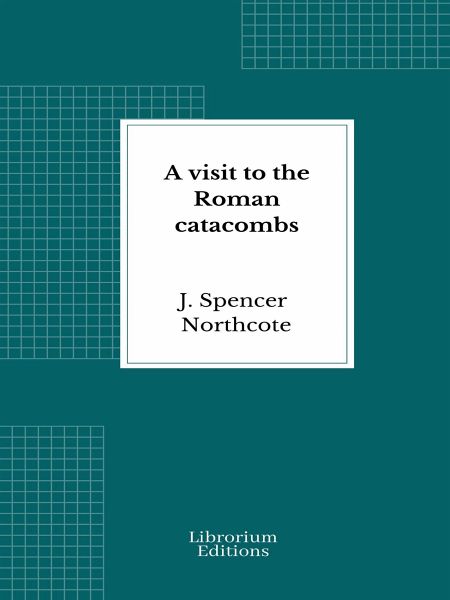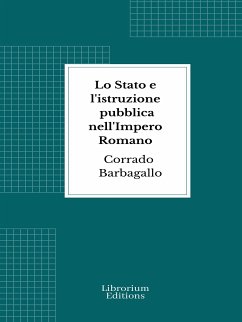
A visit to the Roman catacombs (eBook, ePUB)
Versandkostenfrei!
Sofort per Download lieferbar
1,99 €
inkl. MwSt.
Weitere Ausgaben:

PAYBACK Punkte
1 °P sammeln!
My study of the Roman Catacombs began in 1846. Two years later I published a series of letters upon the subject in the Rambler, and the substance of these, with some additions and corrections, was collected into a small volume in 1856. This was translated both into French and German, and a second English edition was published in 1859. But in 1864 and 1867 the first two volumes of De Rossi's great work appeared; and these not only added indefinitely to our knowledge of particulars about the Catacombs, but also effected a complete revolution in the view to be taken of their history, and laid a n...
My study of the Roman Catacombs began in 1846. Two years later I published a series of letters upon the subject in the Rambler, and the substance of these, with some additions and corrections, was collected into a small volume in 1856. This was translated both into French and German, and a second English edition was published in 1859. But in 1864 and 1867 the first two volumes of De Rossi's great work appeared; and these not only added indefinitely to our knowledge of particulars about the Catacombs, but also effected a complete revolution in the view to be taken of their history, and laid a new basis for the future study of them. Formerly, it had been taken for granted that the Christians had had recourse to this mode of burying their dead, only for the sake of the opportunities of secrecy which it afforded, and it was a difficult question for Christian archæologists to solve how it had been possible to carry on a work of such magnitude, under the very eyes (as it were) of the Pagan authorities, without detection. De Rossi set aside these speculations, and proved that there was no necessity for the early Christians to take exceptional precautions with reference to the burial of their dead, since many of the customs of their Pagan neighbours in this matter were such as they might themselves make use of, and, under ordinary circumstances, their cemeteries were adequately protected by the law.
Dieser Download kann aus rechtlichen Gründen nur mit Rechnungsadresse in A, B, BG, CY, CZ, D, DK, EW, E, FIN, F, GR, HR, H, IRL, I, LT, L, LR, M, NL, PL, P, R, S, SLO, SK ausgeliefert werden.













